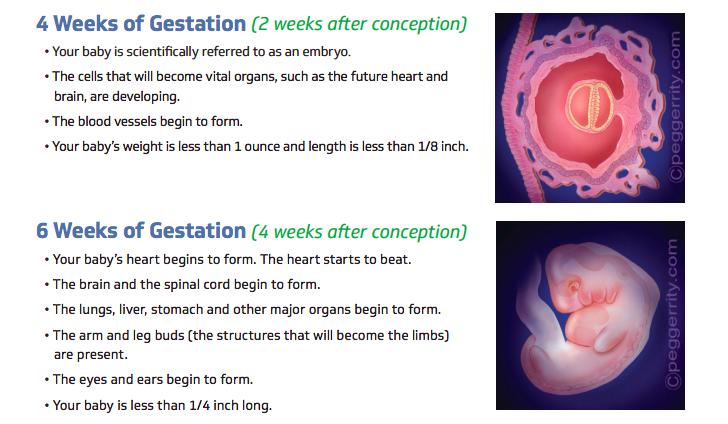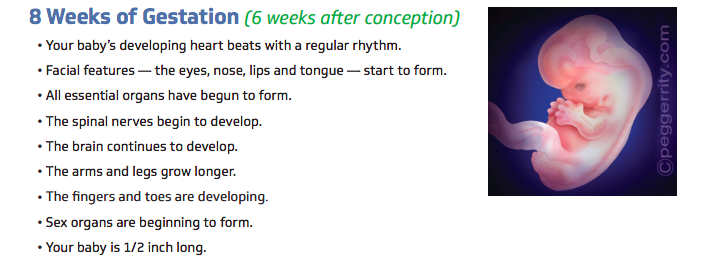Texas Is Misleading Women About the Risks of Abortion

By:
In 2003, Texas passed the Woman's Right to Know Act, which intends to provide "accurate" information to women considering abortion.
The bill specifically states the information provided "must be objective and nonjudgmental and be designed to convey only accurate scientific information about the unborn child at the various gestational ages."
However, it seems this part of the law was disregarded by the state of Texas . "A Woman's Right to Know" contains, at the very least, suggestive language fueling abortion myths — and, at worst, peddles outright fallacies.
'A Woman's Right to Know'
The introduction in the booklet hints at its authors' perspective. "No one can force you to have an abortion, not even your parents or the father of your baby," it states. "Baby" is used throughout instead of the proper medical terms: "embryo" or "fetus."
 A Woman's Right to Know/Texas Department of State Health Services - texas.gov
A Woman's Right to Know/Texas Department of State Health Services - texas.gov
The booklet even refers to an embryo two weeks after conception as "your baby." Saying "your baby" instead of "your fetus" is a tactic employed by pro-life activists to induce guilt over getting an abortion. It's out of place in what is supposed to be a scientific document.
The pamphlet also tricks the reader into thinking fetuses can feel pain by stating: "In consideration of the potential for fetal pain, Texas law currently limits abortion to under 20 weeks."
Linking abortion to disease
The booklet further goes on to link abortion to diseases like breast cancer by using misleading language and the power of suggestion. Under the header, "Breast Cancer Risk," the booklet states:
"Your pregnancy history affects your chances of getting breast cancer. If you give birth to your baby, you are less likely to develop breast cancer in the future. Research indicates that having an abortion will not provide you this increased protection against breast cancer. [...]"
The pamphlet goes on to state that doctors and scientists are still researching possible links between abortion and breast cancer. However, the American Cancer Society clearly states on its website that "scientific research studies have not found a cause-and-effect relationship between abortion and breast cancer."
Linking abortion to suicide
The booklet misleads the reader into thinking there are "mental health risks" associated with abortion, like "sexual dysfunction, flashbacks, and substance abuse." It even suggests killing one's self is a possible outcome of getting an abortion, saying women "report a range of emotions after an abortion ... this can include thoughts of suicide."
In 2008, the American Psychological Association researched a possible link between abortion and mental health issues, concluding: "there is no credible evidence that a single elective abortion of an unwanted pregnancy in and of itself causes mental health problems for adult women."
They do note, however, that "more research is needed to explore other factors that, in conjunction with pregnancy, may place women at risk of developing mental health problems." But the group concludes there is "no evidence that having a single abortion causes mental health problems," which is not what the booklet suggests.
Inaccuracies
The Informed Consent Project found that 30 percent of the medical information provided in "A Woman's Right to Know" is "medically inaccurate," with particular respect to information provided about the first trimester, which was deemed 45 percent medically inaccurate. "Statements often accelerated embryological or fetal development by representing systems as developing at earlier stages of life," the group explains.
 Texas Department of Health Services/A Woman's Right to Know - texas.gov
Texas Department of Health Services/A Woman's Right to Know - texas.gov
Dr. Daniel Grossman, director of Advancing New Standards in Reproductive Health in California, told The Huffington Post that the booklet is "outdated information. It’s biased and it’s misleading."
Elizabeth Plank of Vox put it a little more bluntly with a tweet: "Texas will force women to read imaginary made up literature about how abortion causes breast cancer."
ATTN: reached out to Texas Department of State Health Services and will update when they respond.
